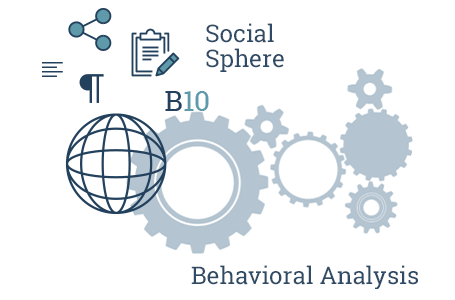
Guiding Unstructured Data Analytic Journeys

Unstructured data poses one of the biggest challenges in the analytics world, and one of the biggest benefits to understanding human behavior, too. It also presents a golden opportunity for Voyager Labs, which has received $100 million in venture funding to guide its clients’ unstructured data analytic journeys.
Voyager Labs was founded five years ago by Avi Korenblum, who served 20 years in Israel’s intelligence community. Despite the nine-figure funding round and a reported $1 billion valuation, CEO Korenblum kept his company remained in stealth mode for years, only emerging last November to begin marketing its products.
The company sells three main products — Voyager Analytics, Voyager Finance, and Voyager eCommerce — all of which share the same underlying cognitive/AI technology. The company doesn’t seem to particularly like to discuss exactly how its proprietary technology works. Suffice it to say, its capabilities appear to be unique in the market.
The common theme running across its products is the need to extract knowledge from vast sums of unstructured data, according to Voyager Labs CTO Jay Klein.
The company’s first product was the Voyager Analytics expert system, which Klein says allows analysts to perform “a very deep and thorough investigation utilizing the social data as the main source of information, but not the only source,” Klein tells Datanami.
Law enforcement agencies, major retailers, and financial services firms use Voyager Analytics to explore connections between people, groups, and entities. The product has the capability to consume any publicly available data feed, including all tweets and public Facebook posts, for example.
As the analyst begins his query using the products GUI, the software goes out and retrieves unstructured data, either from the customer’s own data lake or from the public Internet. Meanwhile, machine learning algorithms work in the background to find connections and correlations hidden in the data, and to suggest other unstructured data sets to bring into an investigation.
“They can start with an investigation that tackles an individual and then the story builds out from that point of view, or from a group of people,” Klein says.
Piecing It Together
The company’s other two products offer similar capabilities for unstructured data analytics.
Voyager Finance uses publicly available data to create a new picture of credit-worthiness by utilizing billions of “human pixels,” while Voyager eCommerce provides a new take on product recommendation engine by generating analyzing any available data to make educated guesses about what will resonate best with prospects.
All three of the products have three main parts, Klein says. “There’s the connection element that basically retrieves whatever can be retrieved from the network externally, or from their own data sources that customers have collected themselves.
“After the information has been collected,” he continues, “our behavioral engines basically…find the specific insights needed to build a graphical map that would present either the connections of the individual groups or topics that are relevant to the case.”
The most important part, Klein says, “is the output itself, which basically displays the results of our behavioral engine, which is basically an AI component developed internally.”
To be sure, there are other search engines, recommendation engines, and credit engines on the market. There are even some that are open source. But Voyager Labs says customers can get better bang for their analytic buck by selecting its proprietary analytics software.
“It’s not that we like to reinvent the wheel,” Klein says. “But the generic libraries that are out there are not focused enough and tailored enough for the vertical problems we try to solve. What that means is that when you try to run the mass amounts of calculations that are required for this process, you will find out that generic libraries will underperform what is actually needed.”
A Structured Approach
Voyager Labs employs about 130 people, most of which are data scientists, data analysts, and AI experts, Klein says. The company, which maintains an R&D lab in Tel Aviv and has other offices in New York and Washington DC, has made a sizable investment in developing its own proprietary machine learning and deep learning algorithms.
Whatever you call it — deep learning, cognitive computing, AI — Voyager Labs is one of the companies that’s helping real companies get tangible results from vast stockpiles of unstructured data. The company’s products won’t help you store and manage these stockpiles. That’s not its thing. Instead, it will let you tap into any piece of unstructured data that’s already stored and made available across the Internet.
Voyager Labs COO Maya Nester says the company’s capability to reach out to any publicly available data source and incorporate it into analysts’ queries is what differentiates it from other products.
“It’s the ability to look at the vast amounts of data to provide us the answer,” she says. “There are a lot of signals out there and what we can do is assemble them in a different manner that’s easy to retrieve them.”
It’s not necessarily finding new questions to ask of unstructured data, but speeding up the process of asking the same questions — like “Who’s stealing from me?” and “What do my customers want to buy?” that companies have been asking for generations.
“It shortens the time and it reveals things that are hidden because there’s so much information out there,” Nester says. “Any analyst could reach the same result after months of investigation, because it’s publically available. But instead of having 100 analysts to investigate something, you have this software that enables you to do this in a very quick and precise manner.”
Related Items:
Is Your Business Ready for AI? Ask These 3 Questions
AI Platforms Seen Emerging in 2017






























